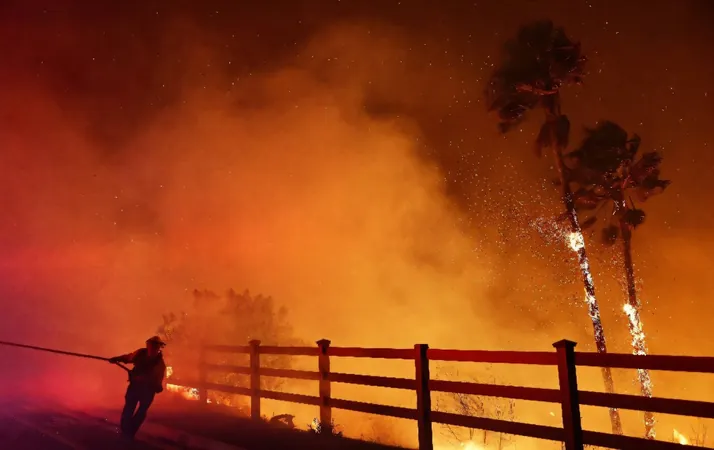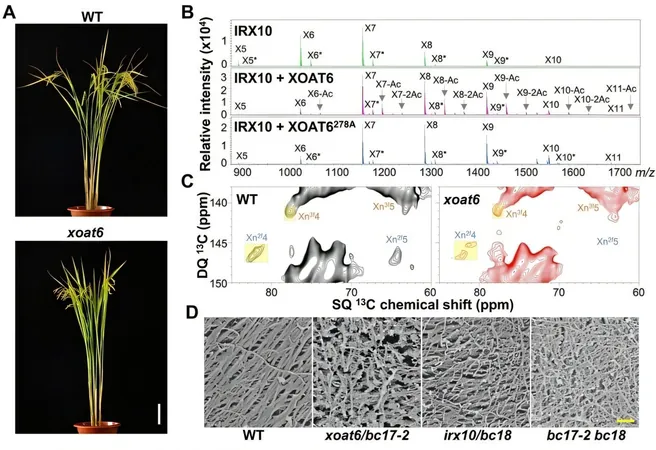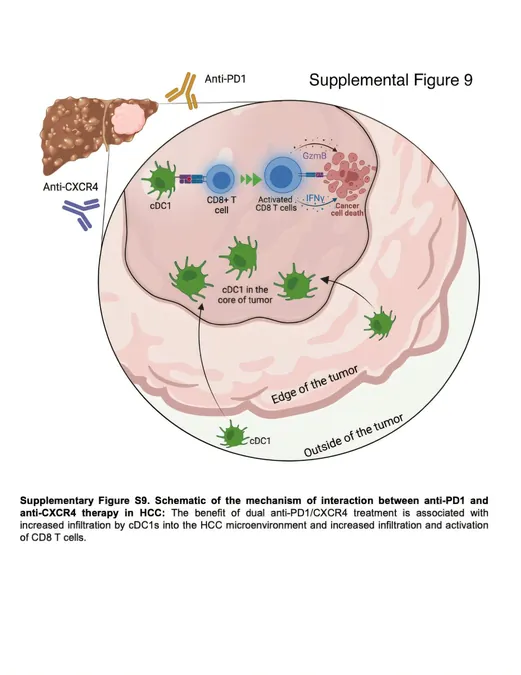
Raw Milk Investigation Sparks Alarm as Child Detects Flu A; Avian Influenza Outbreaks Worsen Across U.S.
2024-12-11
Author: Michael
Health officials in Marin County, California, have raised serious concerns regarding the consumption of raw milk following a child's recent flu A infection. The child experienced symptoms including fever and vomiting shortly after drinking raw milk, prompting the county’s public health department to issue a warning to consumers about potential health risks associated with unpasteurized milk.
This incident is part of a larger and alarming trend, as multiple states are grappling with the H5 avian influenza outbreak. Recent developments include the detection of the virus in wastewater on a second Hawaiian island and several confirmed cases in California dairy cows. Additionally, outbreaks in poultry have emerged in five states across the nation.
According to Marin County Public Health, the child tested positive for influenza A, which can manifest from various strains ranging from seasonal flu to strains related to avian flu. Collaborating with the California Department of Public Health and the Centers for Disease Control and Prevention (CDC), officials are investigating the case further. Fortunately, the child has since recuperated, and no other family members have shown symptoms of illness.
Earlier this month, a California raw milk producer was compelled to recall several batches after testing revealed the presence of the virus in retail milk. Affected farms underwent quarantine measures to prevent further distribution of their raw milk products.
The CDC noted that although the child's sample could not be fully sequenced, it closely resembles the genotype associated with dairy cattle infections. In light of this situation, health authorities have advised medical professionals to consider influenza A in patients exhibiting symptoms who have had contact with sick animals or recent exposure to raw dairy products.
California has reported a total of 32 confirmed human H5N1 infections this year, with nearly all cases related to individuals working in the dairy industry. The prominence of this virus raises concerns about food safety and the implications it has on public health.
In Hawaii, the Department of Health has confirmed the detection of H5 avian influenza in wastewater samples collected on December 2 from a facility in Hilo on the Big Island. Officials are working to determine the relationship of this strain to previously identified H5N1 infections among birds and poultry on Oahu Island. Earlier, a similar wastewater detection had preceded the state's first confirmed outbreak involving backyard poultry.
Meanwhile, the U.S. Department of Agriculture's Animal and Plant Health Inspection Service (APHIS) confirmed an additional 32 outbreaks in California's dairy cattle, increasing the total number of affected farms in the state to 559 and nationwide to 774 across 15 states.
The poultry sector is also facing immense pressure, with several new outbreaks reported across five states, including significant infections in California. Here, a broiler farm in Tulare County, housing over 330,000 birds, has been severely affected, along with multiple other farms in Stanislaus and Kern counties.
In Missouri, the reports of poultry outbreaks have intensified, with incidents logged on both commercial and backyard farms. South Dakota continues to be hit hard, highlighting concerns over recent outbreaks at turkey farms. Colorado and Idaho are also reporting new cases primarily among backyard flocks.
With these ongoing developments, it is clear that both human and animal health remains at a critical intersection, necessitating heightened vigilance and proactive measures from health authorities and consumers alike. Stay updated as this story continues to unfold and remember: what you consume may be riskier than you think!









 Brasil (PT)
Brasil (PT)
 Canada (EN)
Canada (EN)
 Chile (ES)
Chile (ES)
 España (ES)
España (ES)
 France (FR)
France (FR)
 Hong Kong (EN)
Hong Kong (EN)
 Italia (IT)
Italia (IT)
 日本 (JA)
日本 (JA)
 Magyarország (HU)
Magyarország (HU)
 Norge (NO)
Norge (NO)
 Polska (PL)
Polska (PL)
 Schweiz (DE)
Schweiz (DE)
 Singapore (EN)
Singapore (EN)
 Sverige (SV)
Sverige (SV)
 Suomi (FI)
Suomi (FI)
 Türkiye (TR)
Türkiye (TR)